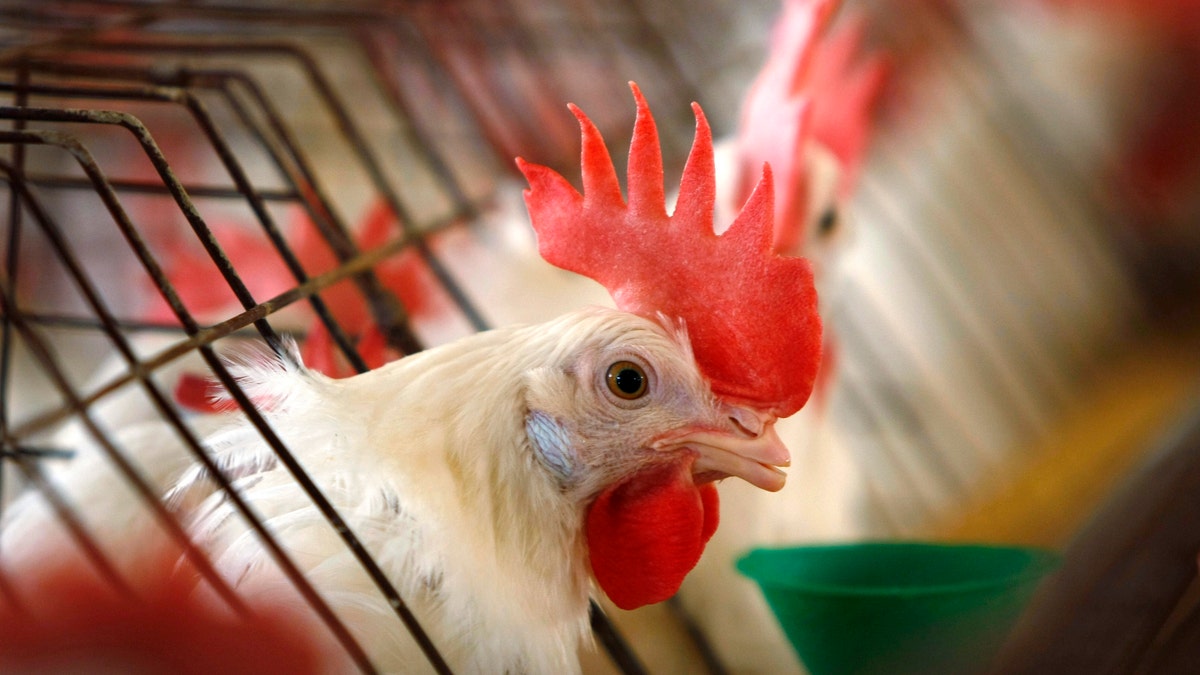
A caged hen feeds at an egg farm. (REUTERS/Mike Blake)
U.S. regulators announced new guidelines that call on global pharmaceutical companies to phase out the use of some antibiotics meant to enhance growth in animals used for food, hoping to stem a growing tide of bacterial resistance to the same drugs when they are prescribed for humans.
In guidance issued on Wednesday, the Food and Drug Administration asked global drugmakers and animal health companies including Eli Lilly & Co and Zoetis to voluntarily revise labels of medically-important antibiotics to remove references to use in animal production.
"Because antimicrobial drug use in both humans and animals can contribute to the development of antimicrobial resistance, it is important to use these drugs only when medically necessary," the FDA said in a release.
Critics said the voluntary guidelines give drugmakers too much discretion in policing their own use of antibiotics. Democratic lawmaker Louise Slaughter called the FDA move an inadequate response to the overuse of antibiotics "with no mechanism for enforcement and no metric for success."
Her view was echoed by consumer and environmental advocacy groups.
"Our fear ... is that there will be no reduction in antibiotic use as companies will either ignore the plan altogether or simply switch from using antibiotics for routine growth promotion to using the same antibiotics for routine disease prevention," said Steven Roach, senior analyst with advocacy group Keep Antibiotics Working.
The FDA said it had already received support for the new measures from Zoetis and Elanco, a unit of Eli Lilly, which sell a large percentage of the products that will eventually be phased out. Elanco said in a statement that it would voluntarily narrow use of antibiotics used to treat both humans and animals "only to therapeutic purposes of treating, controlling and preventing diseases in animals under the supervision of a veterinarian."
Once companies remove farm production uses of their antibiotics from drug labels, it would become illegal for those drugs to be used for those purposes, Deputy FDA Commissioner Michael Taylor said in a conference call with journalists.
Although the program is meant to be voluntary, Taylor said the FDA would be able to take regulatory action against companies that fail to comply.
The FDA's "final guidance," also brings the drugs under oversight of veterinarians by changing the over-the-counter status of the products.
The FDA said it will require animal pharmaceutical companies to notify the agency within three months of their intent to adopt its strategy. The companies would then have three years to complete the transition process.
